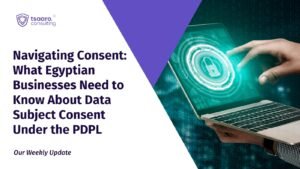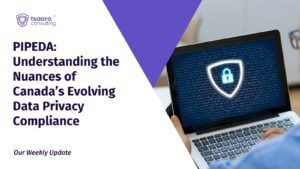Virtual connections are by nature public. You leave a digital trail as you browse that can be followed or identified. Maintaining a high degree of anonymity is essential because cybercriminals are constantly seeking openings to strike.
Consumers are curious about how the corporations they deal with, manage and protect their data as the world moves closer to becoming entirely digital. To safeguard consumers, sensitive information such as names, addresses, financial information, and other details should be handled with care. Programs for data privacy can help limit access and provide users with more control over the information they contribute.
By implementing a privacy program on your network, you can improve your operations while making your audience feel safer. What is privacy software? What happens in the case where a privacy program fails?
A Privacy Program: What Is It?
A framework for characterizing and strengthening the vital information you need in your online application is a privacy program. You may prevent user interests from being violated and limit data breaches by implementing a successful privacy program. You must research all data protection principles as well as how they apply to your organization in order to have a good privacy program in place. You can adopt policies and protocols for your company when you have a basic understanding of the program.
What happens in the case where a privacy program fails?
Companies trying to develop privacy strategies may first face a few challenges. In addition to corporate resource limitations, hiring the appropriate personnel is a common impediment to the implementation of privacy programs. Organizations may be subject to legal and financial liabilities, reputational injury, unnecessary mistakes, and an inaccurate perception of security if they hire unqualified personnel or have insufficient resources.
- Legal And Financial Liabilities.
Inadequate privacy programs carry two well-known risks: financial and legal liabilities. Think about the cost that a data breach might take. Companies that were liable to spend over $4 million per incident in 2021. Although achieving legal compliance with applicable requirements is the main objective of a good data privacy program, it is difficult to overlook the financial dangers associated with non-compliance (i.e., legal costs, punitive measures, reimbursements, public affairs, etc). In order to lower their risk on the financial and legal fronts, organizations should be competent to comply with and document the standards for compliance.
- Reputational Injury
The incompetence of privacy programs can have negative effects on reputation alongside financial and legal repercussions. The way, speed, and effectiveness with which a team responds to a crisis once an accident has occurred have a significant impact. A team’s inability to respond appropriately can give the impression that they do not care about their customers’ interests adding to getting across as careless for the first incident. Reputational harm can put businesses with the best products and services at serious risk because consumers just won’t give their personal information to a company that can’t be trusted. To prevent the brand damage that can result from poorly run privacy initiatives, it is critical that firms understand compliance obligations.
- An Inaccurate Perception of Security.
The risk of a false sense of protection in privacy management is another. Even for experienced privacy experts, it can be challenging to accurately assess the current state of your privacy strategy. For this reason, it’s beneficial to have a new set of eyes to offer a different viewpoint and support for the health of the privacy program. When an organization wants the experience of more experienced privacy specialists who know what to search for and how to interpret what is written in a circumstance that could seem typical to a beginner privacy team, this becomes even more crucial.
Conclusion.
For individuals who are unfamiliar with the amount of effort involved, data privacy compliance might be scary. Organizations run the danger of making human mistakes if privacy automation methods aren’t put in place. When given the responsibility of administering programs alone, even seasoned professionals may find it difficult to keep up with the demands of the position. It takes a lot of work to keep a complete program compatible across a variety of domains, each with its own set of requirements.
Without the aid of technology and automation, it is impractical to track different data flows given the amount of data being gathered and exchanged between systems. Understanding the type(s) of data being held, how it has been categorized, the standards that regulate the data, the source of that data, and who has accessibility to it are essential for an efficient privacy program. By automating some of this activity, it is possible to reduce the possibility of human error and further guard against oversight that can result from overstretched staff.
The guidelines for better Privacy management and administration are straightforward once you understand them. Once they become ingrained in your behavior, they will aid in defending you from frequent scam tactics. Get in touch with us at info@tsaaro.com If you want to run an audit of your consent practices, check out our Regulatory Compliance Service, and Schedule a call with our experts by clicking here. Take the first step towards a secure your organization’s data by scheduling a call with our privacy expert team at Tsaaro Solutions today.










